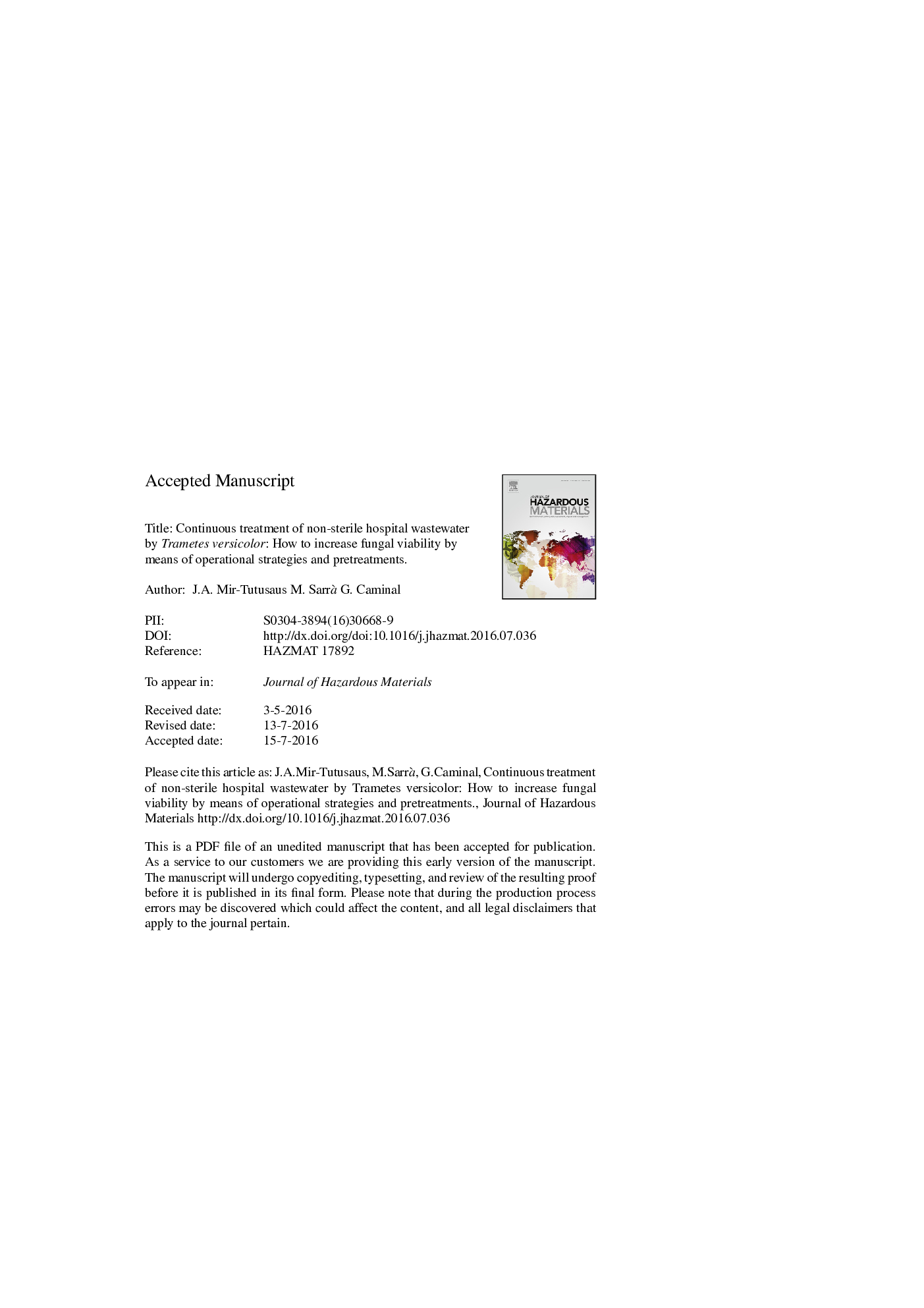| Article ID | Journal | Published Year | Pages | File Type |
|---|---|---|---|---|
| 6970179 | Journal of Hazardous Materials | 2016 | 24 Pages |
Abstract
Hospital wastewaters have a high load of pharmaceutical active compounds (PhACs). Fungal treatments could be appropriate for source treatment of such effluents but the transition to non-sterile conditions proved to be difficult due to competition with indigenous microorganisms, resulting in very short-duration operations. In this article, coagulation-flocculation and UV-radiation processes were studied as pretreatments to a fungal reactor treating non-sterile hospital wastewater in sequential batch operation and continuous operation modes. The influent was spiked with ibuprofen and ketoprofen, and both compounds were successfully degraded by over 80%. UV pretreatment did not extent the fungal activity after coagulation-flocculation measured as laccase production and pellet integrity. Sequential batch operation did not reduce bacteria competition during fungal treatment. The best strategy was the addition of a coagulation-flocculation pretreatment to a continuous reactor, which led to an operation of 28Â days without biomass renovation.
Related Topics
Physical Sciences and Engineering
Chemical Engineering
Chemical Health and Safety
Authors
J.A. Mir-Tutusaus, M. Sarrà , G. Caminal,
